
Four Lenovo highlights at IFA 2023
Lenovo loves to announce new products at the world’s big trade shows, and IFA 2023 is no different. We spent an hour grappling with this year’s releases in a top-secret hotel in Berlin. Here, then, are four Lenovo highlights at IFA 2023.
Lenovo Legion Go
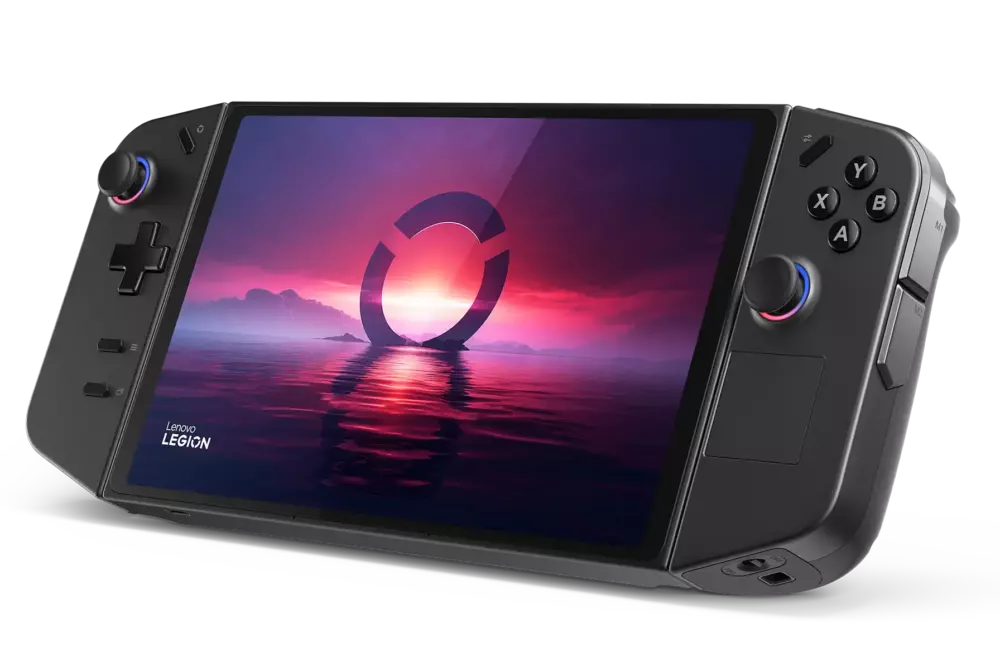
I tried, so hard, to work out a business angle for the Lenovo Legion Go. After all, it runs Windows 11, so if you connect a Bluetooth keyboard then it’s a travel PC! Right? Heck, there’s even a trackpad built into the right controller.
But I had to admit defeat. This is a portable gaming device, a heads-on competitor with the Asus ROG Ally and Steam Deck. So, perfect for gaming developers to take with them on trips… but they’re far more likely to bring the new Legion 9i laptop, below.
In terms of hardware, the Legion Go has much in common with the ROG Ally. It’s powered by AMD’s Ryzen Z1 or Z1 Extreme processor, and when I chatted to Lenovo’s resident gaming enthusiast, Joey Bell, he said he had yet to find a game that didn’t run smoothly on his prototype. And that included the Z1.
The Legion Go should also be less susceptible to throttling than the ROG Ally as Lenovo has opted for a thicker design to accommodate more cooling. You can feel the hot air rise through the vents at the top, although the device itself stayed cool to hold. Besides, you’ll be holding it via the controllers most of the time.
These detach, Nintendo Switch-style, with a handy kickstand allowing you to sit the 8.8in OLED screen on a table. That gives the Legion Go the edge over the Ally, which has a 7in screen and no kickstand.
There’s one extra neat touch, which is that the right-hand controller slips into a holder that effectively turns it into a mouse. The holder supplied at IFA was very simple, just a carved-out piece of plastic, but the Legion Go will ship with a magnetic version.
While none of the games on show supported gyro movement for the controllers, that should arrive by launch — that is, October 2023, giving you plenty of time to think of a business reason to buy one.
Pricing is a little confusing right now. In the UK, the Legion Go with 512GB of storage will cost £699 (but this may be with a plain Z1; we are trying to clarify with Lenovo). We have also been told the Legion Go will start at €799 inc VAT for 512GB of storage, but suspect that is for the Z1 Extreme model.
Lenovo Legion Go photos
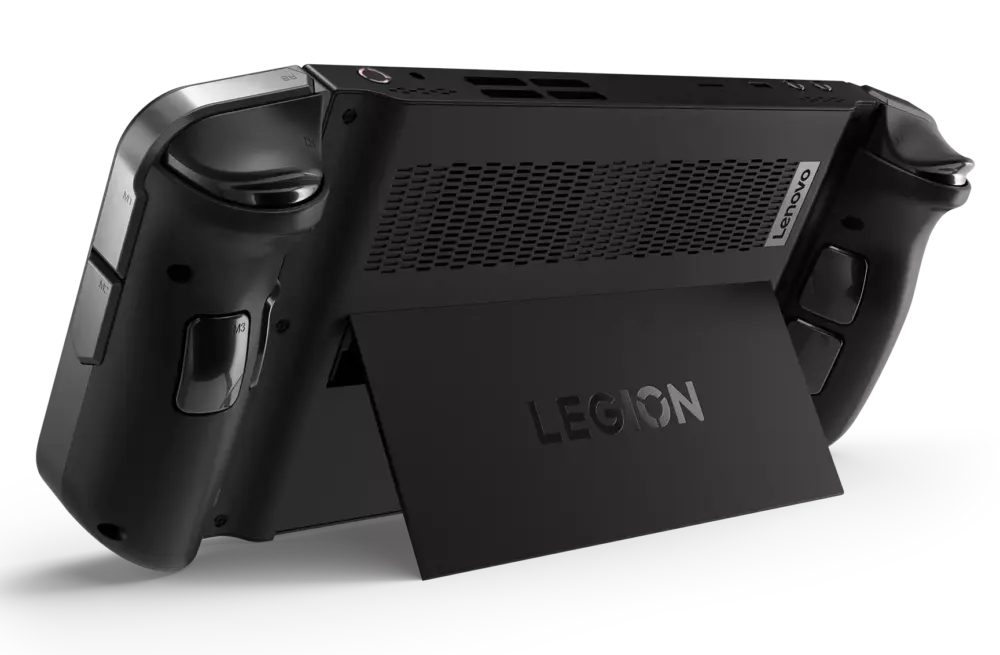
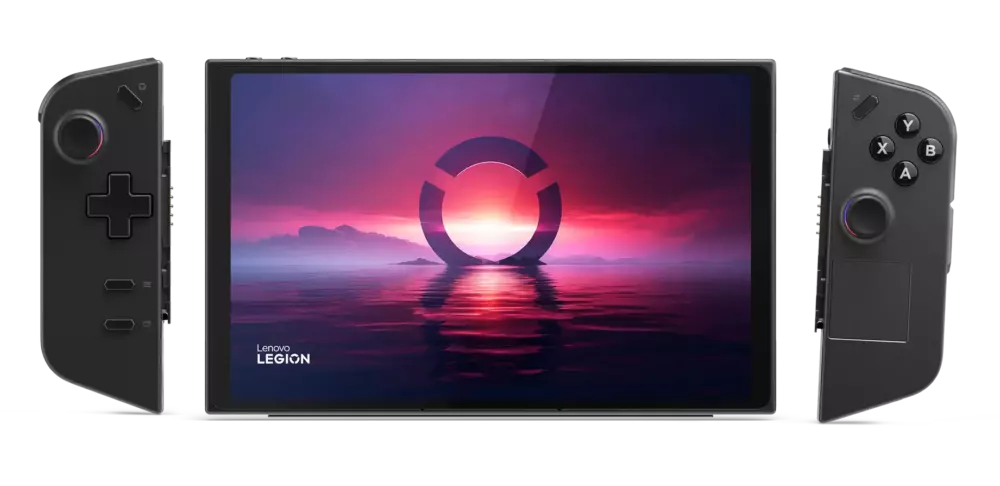
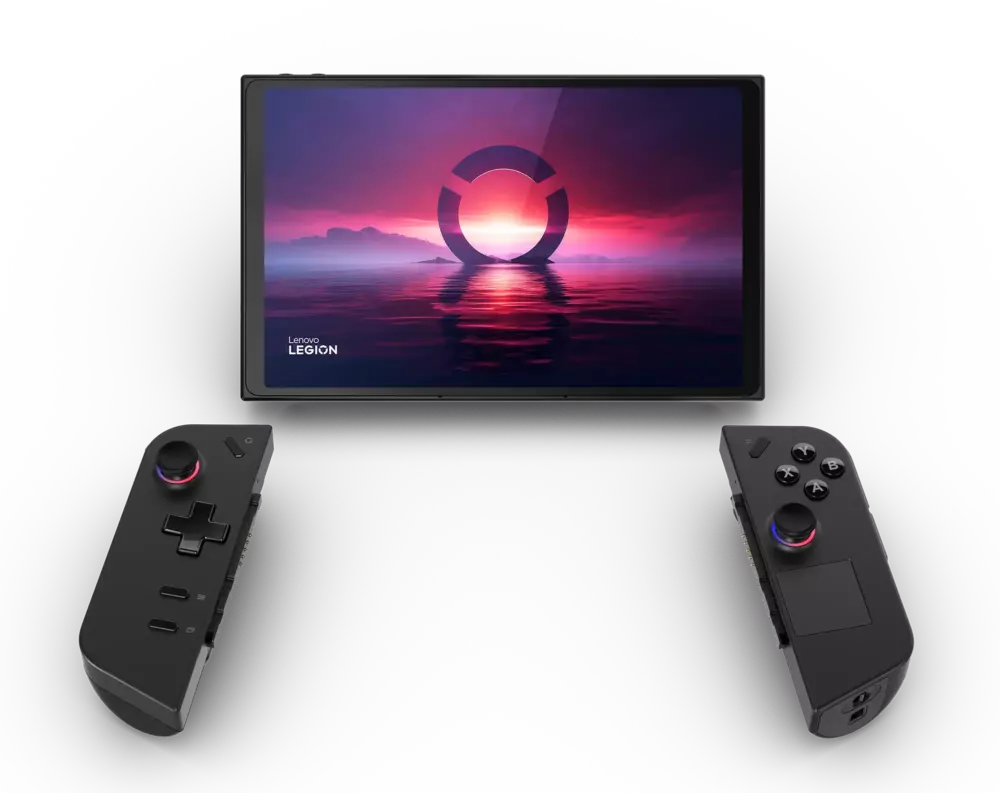
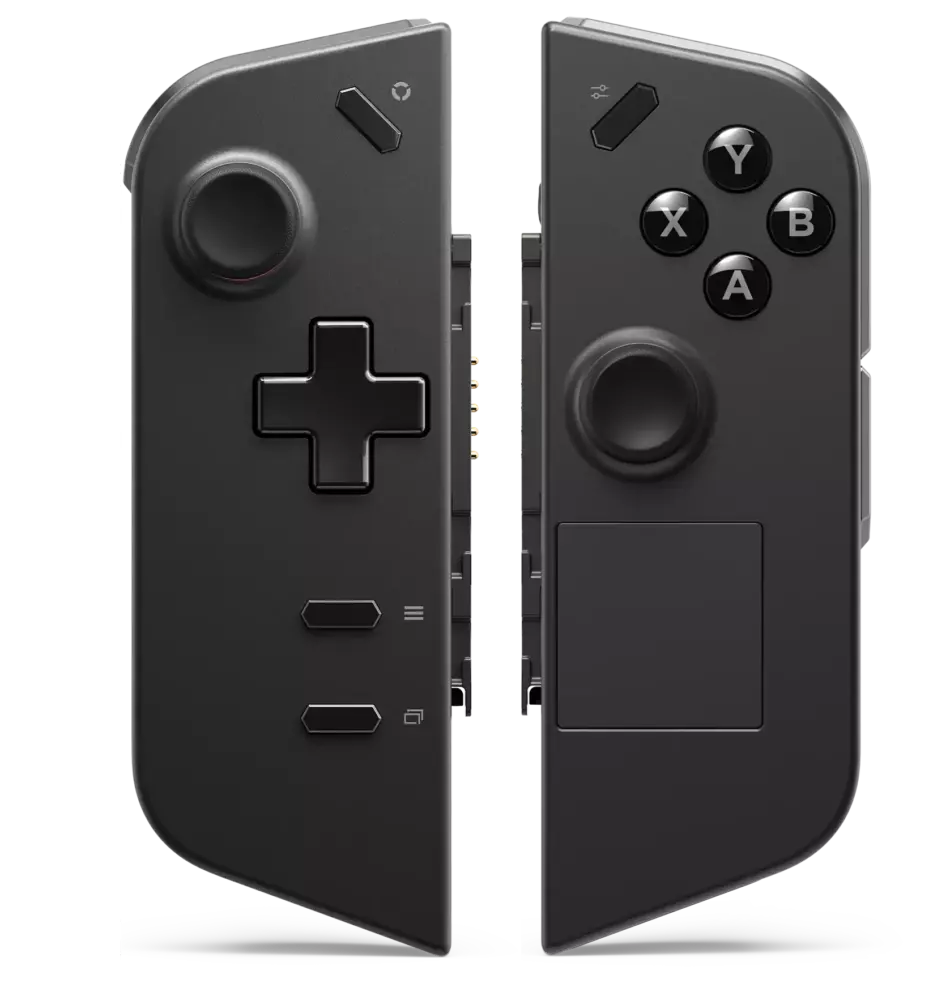
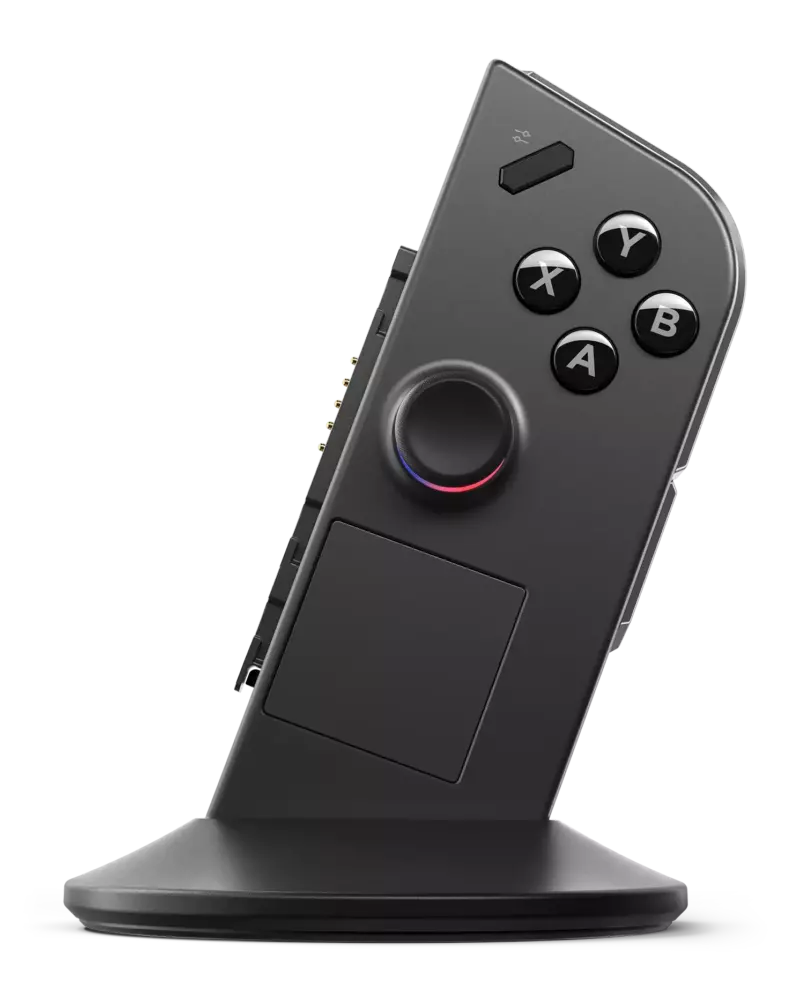
Lenovo ThinkVision 27 3D monitor
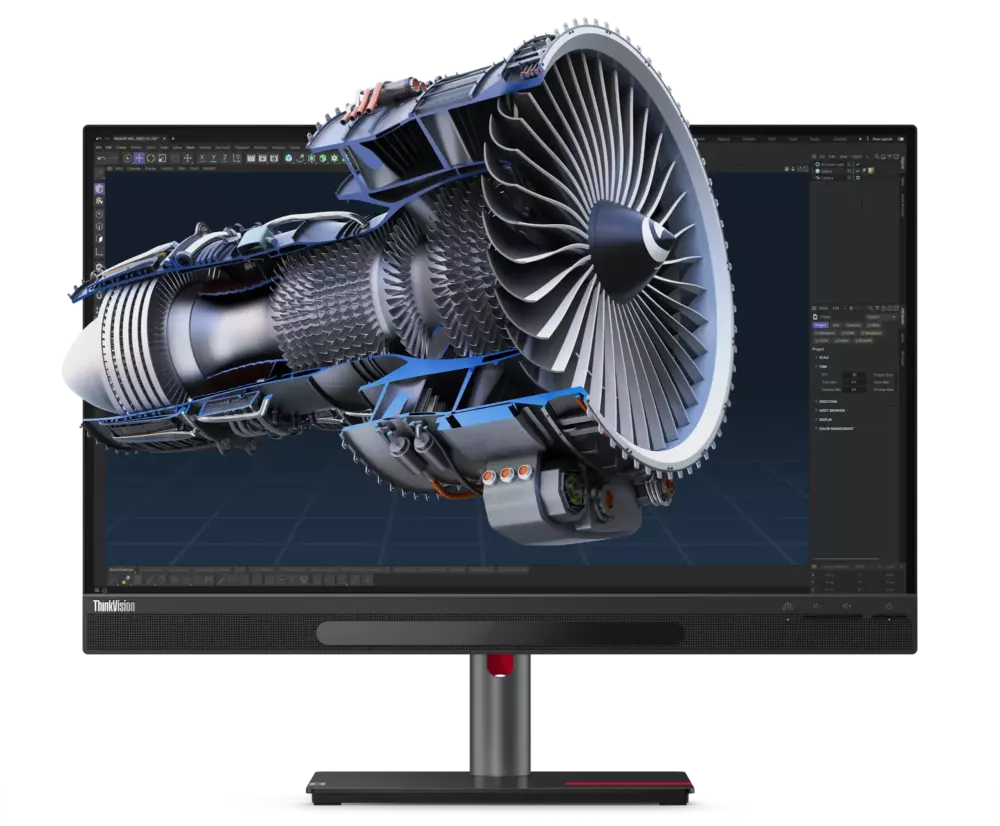
Here’s a product that needs no mental gymnastics to justify: a 27in 4K monitor that seamlessly flits between 2D and 3D content. You can already buy (and I’ve already tested) 15.6in 3D displays from Acer, but there’s a big advantage in having such a large canvas when playing with 3D models.
It will cost €2,999 inc VAT, so you’re paying roughly double for the 3D capability when compared to a similar professional quality display. This is no ordinary 4K monitor: it will be factory-calibrated in both the DCI-P3 and Adobe RGB colour spaces. Hollywood favours the first, print designers the second.
I played with the ThinkVision 27 3D for around 15 minutes, so these are only my first impressions. However, I think it’s perfect for the target audience, with strong colours from every viewing angle. Lenovo provides the 3D platform (3D Explorer), so designers simply export their models for viewing.
And, as is true for those Acer monitors, the 3D experience is superb. Your eyes just “get it”, thanks to images being beamed to them individually. That is, a lens layer on top of the panel sends one pixel to the left eye, the next to the right eye. And thanks to a pair of eye-tracking cameras, the monitor knows exactly where to beam the images.
I’ve saved the bad news. You will have to wait until February 2024 to get your hands on this monitor. In the meantime, I expect Acer, Asus and HP to at least announce rival screens. But this is a great first offering by Lenovo.
Lenovo ThinkVision 27 3D photos
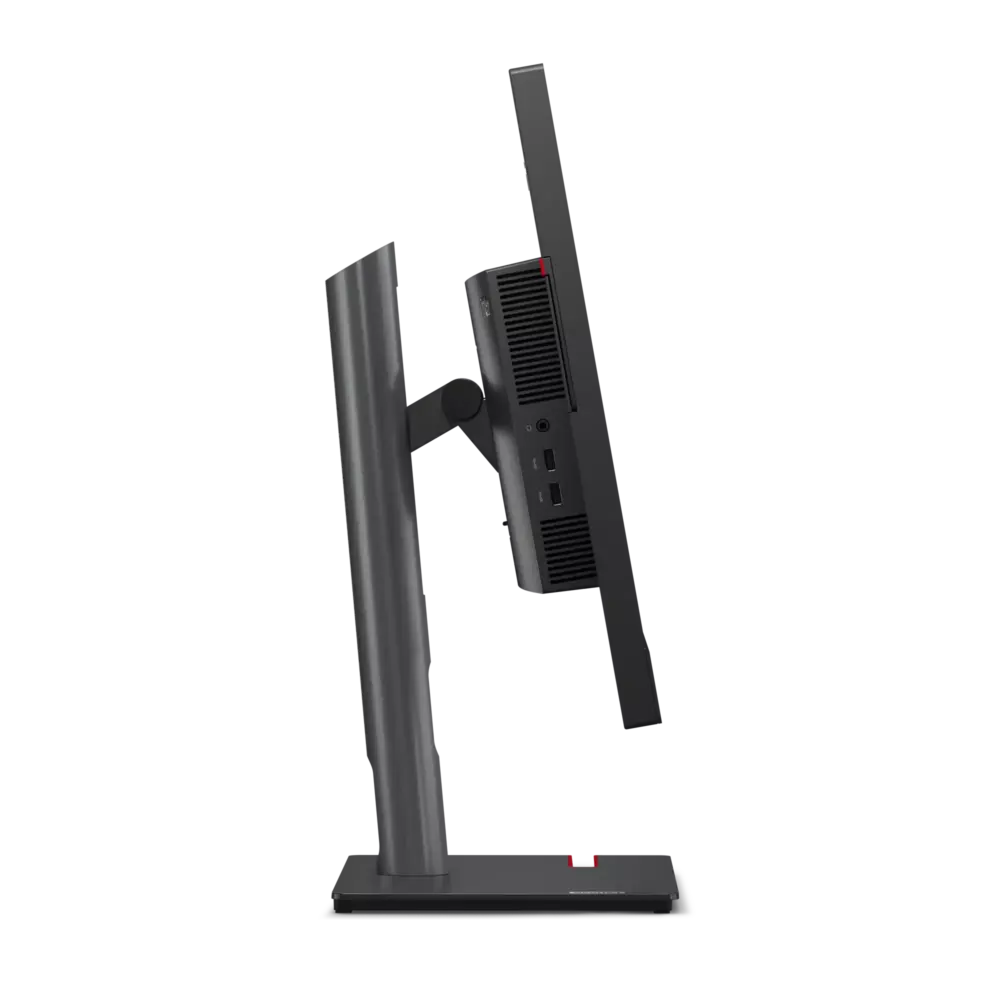
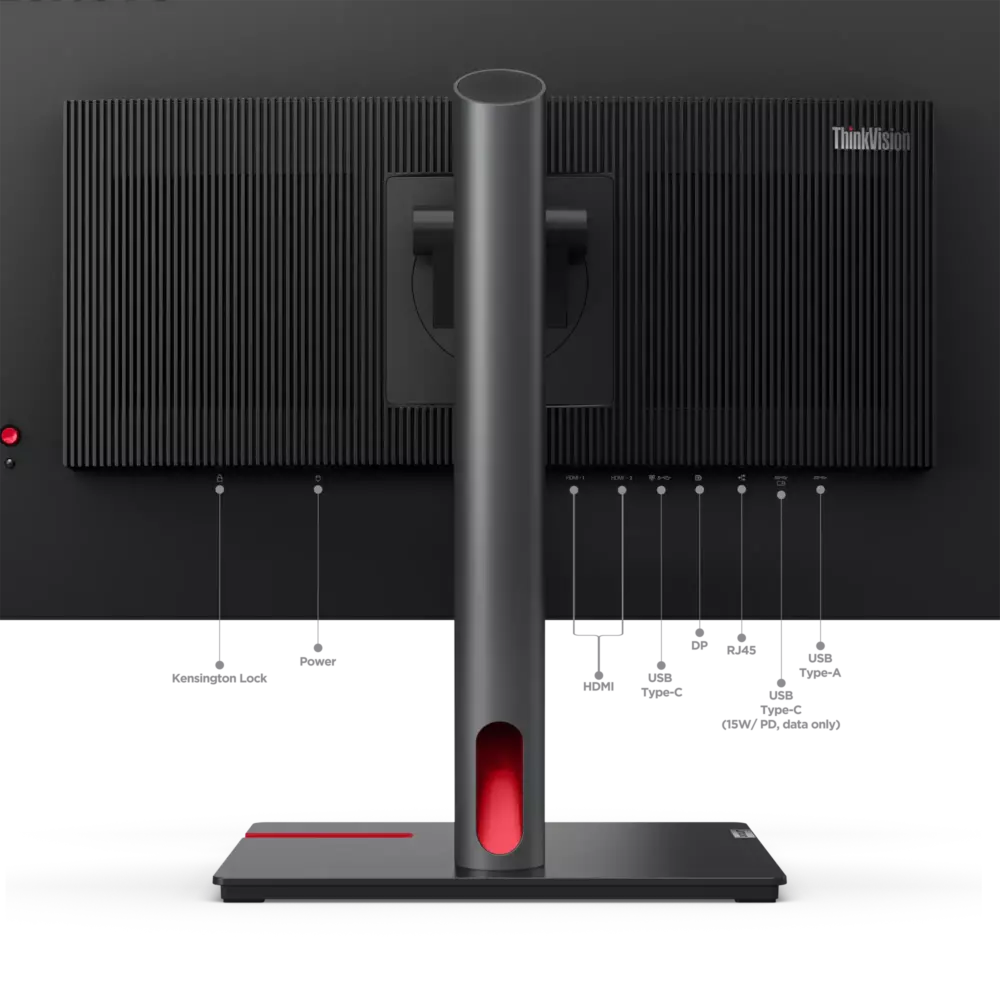
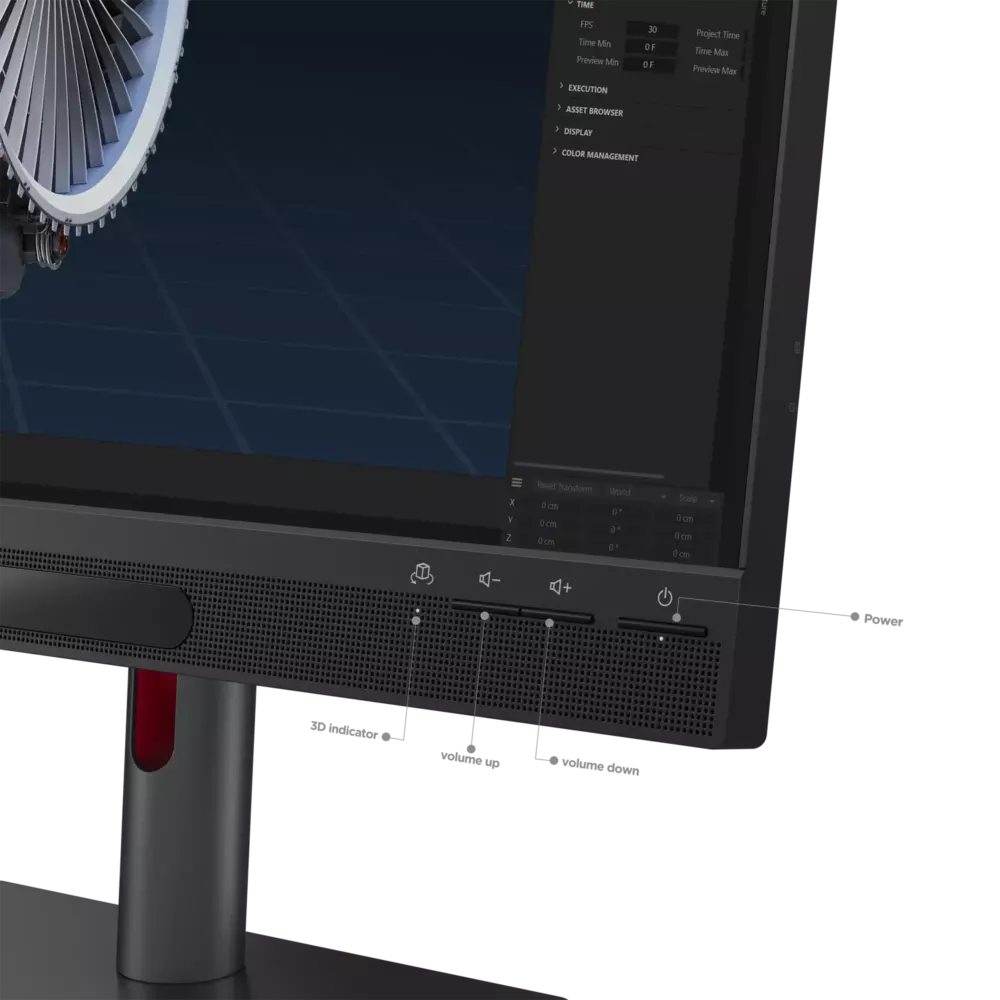
Lenovo Legion 9i
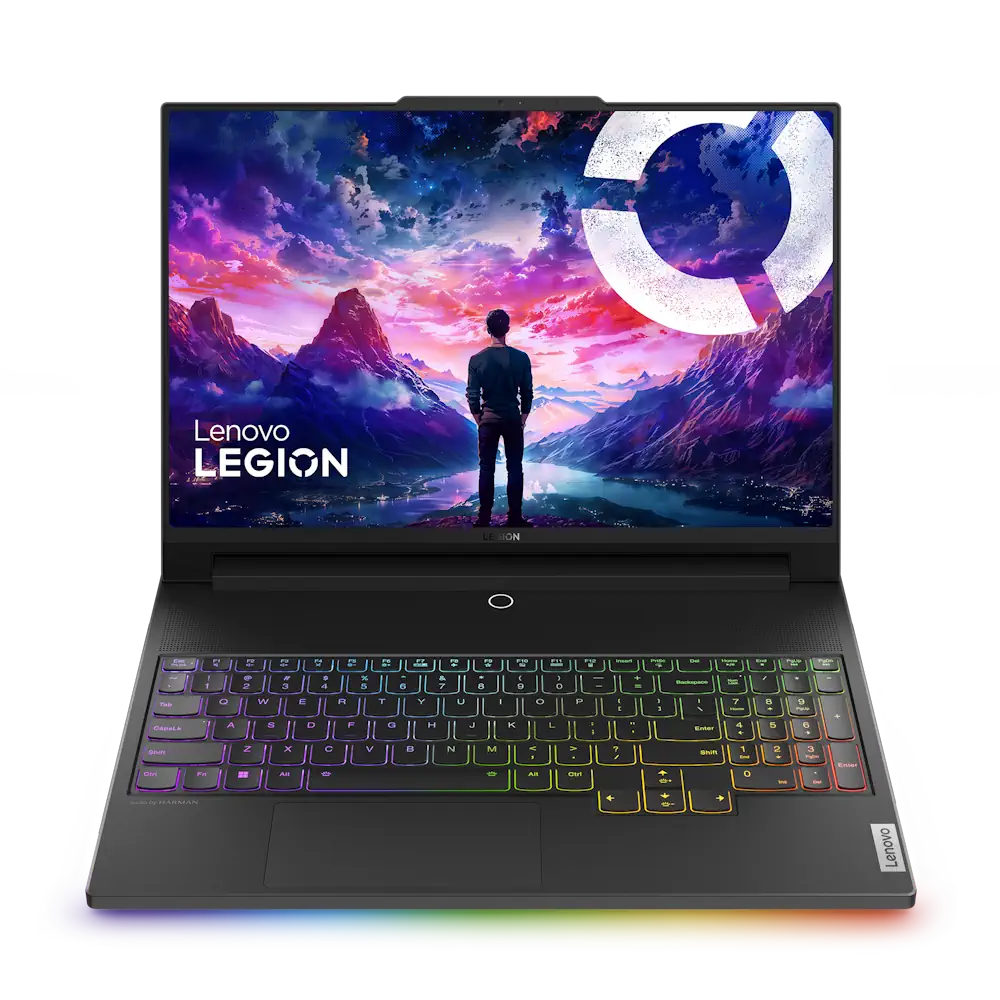
While this is an unabashed gaming laptop, content creators will surely love it too. After all, load up Nvidia Studio drivers and you can take full advantage of its RTX 40 series graphics and Core i9-13980HX processor.
That’s true of hundreds of gaming laptops, though. What makes the Legion 9i attractive is its combo of power, weight and slimness. To use a boxing comparison, this is a heavyweight gaming system in the middleweight class.
You can expect knockout performance thanks to a 230W TDP. Thermal design power matters in gaming laptops, as it’s often this rather than the silicon that limits speed. For example, Nvidia’s RTX 4090 wants 150W all to itself at peak draw.
Lenovo partners with Cooler Master to create a liquid cooling system to match. Crucially, this is integrated into the laptop. Lenovo drills 6,333 holes into the top surface, above the keyboard, with a huge air intake on the rear. The system then expels the hot air from the sides.
While the keyboard is fantastic to type on, that intake grille pushes the keyboard down an inch further than normal, shortening the touchpad in the process. It also means you lose half the usual area where you rest your palms. It felt awkward in my short time with the laptop, but perhaps I would adapt to it over time.
Let’s end on the plus sides. All this power comes in a 2.6kg chassis that measures 18.9mm to 22.7mm deep. And if you aren’t going to be gaming, you can recharge the 99.9Wh battery via the two Thunderbolt 4/USB 4 ports on the rear.
It’s packed with connectors, too. At the back, HDMI 2.1, RJ-45 and a USB-A port (plus the DC input). A 3.5mm combo jack and SD card reader on the left. And on the right, further USB-C and USB-A ports. It even ships with Wi-Fi 7.
One more thing: the 16in screen is glorious. It uses mini-LED technology, with similar blacks and colours as OLED. Gamers will appreciate its 165Hz refresh rate, creators the fact you can switch between factor-calibrated DCI-P3 and sRGB colour spaces.
Unlike the ThinkVision 27 3D monitor, you won’t have long to wait. The Lenovo Legion 9i is already on sale in the UK with a starting price of £3,999. That’s for an RTX 4080 model. The top-end machine with an RTX 4090 costs £4,599. No one said quality comes cheap.
The Legion 9i should go on-sale worldwide in October.
Lenovo Legion 9i photos
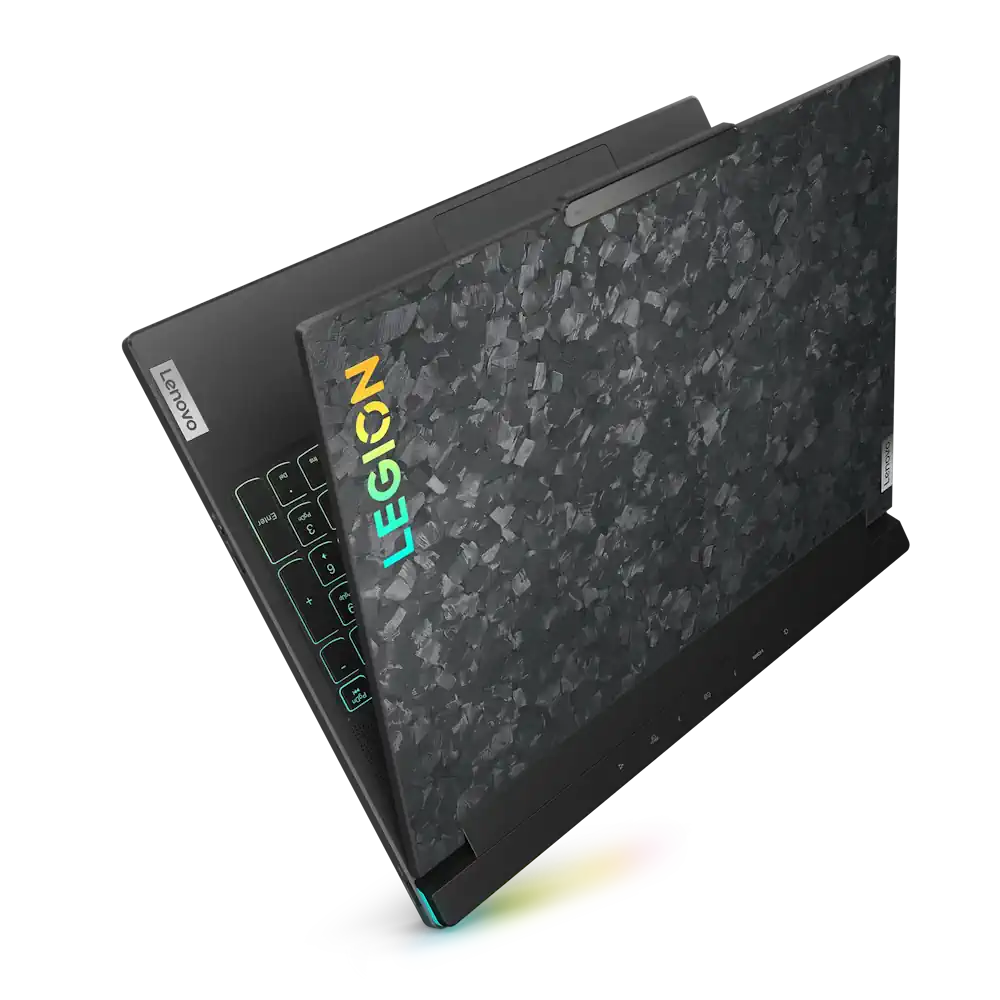
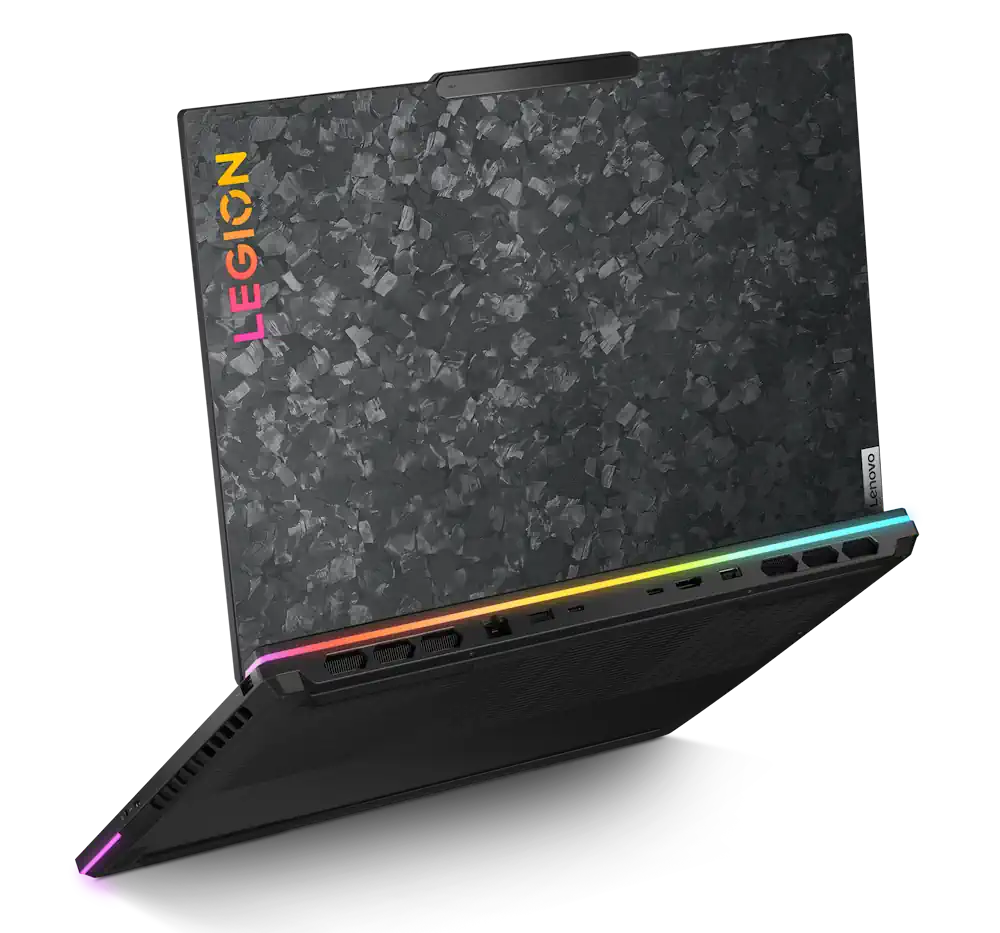
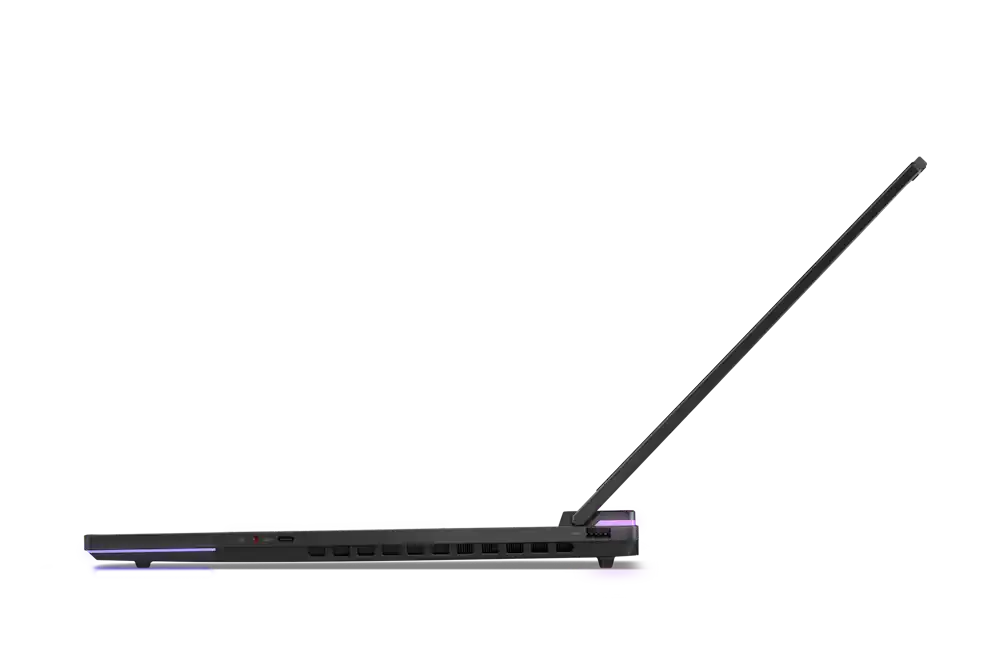
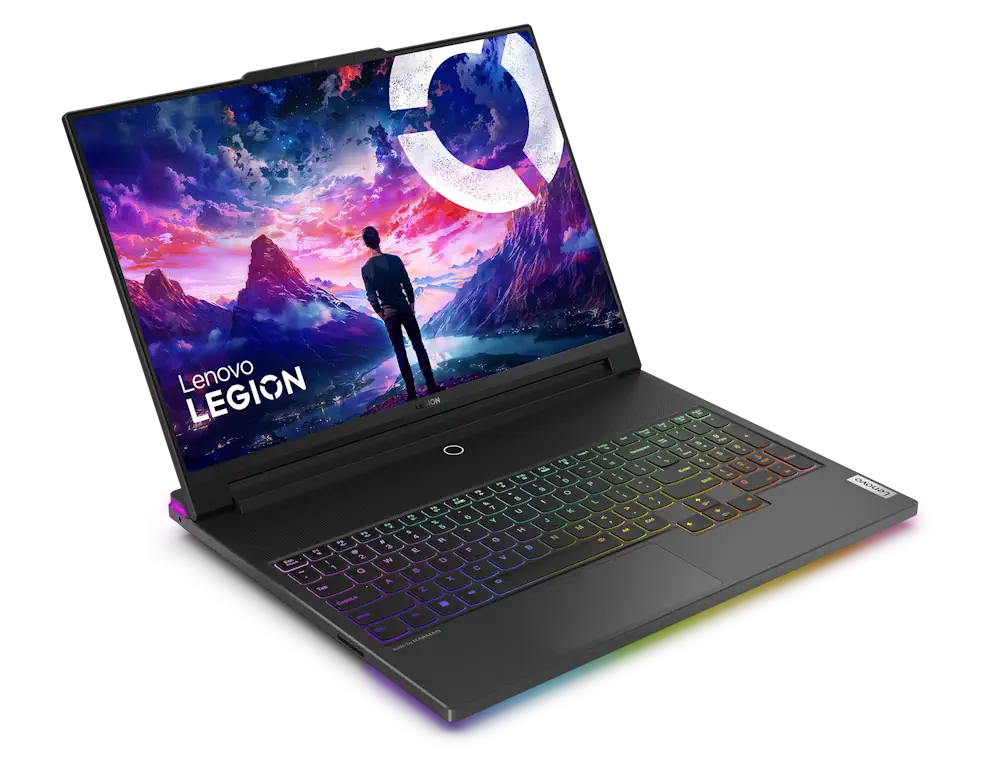
Lenovo Legion Glasses
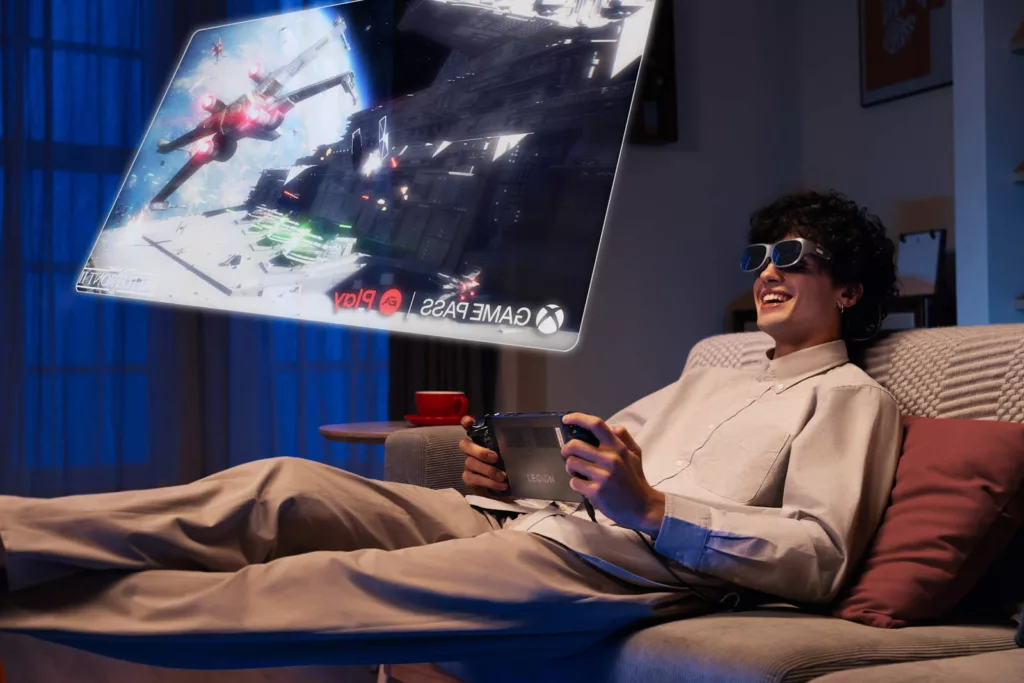
I pondered whether or not to include the Lenovo Legion Glasses on this list. Why? Because I didn’t like them. Sorry, Lenovo. You can at least partially blame it on the fact that I wear glasses, so all I could see of each Full HD micro-OLED lens was a blur.
The good news is that you can order add-on prescription lenses for the Legion Glasses. These slide behind the display, so are interchangeable. This means everyone should appreciate the rich contrast and colours delivered by OLED technology.
The idea behind these glasses is that it’s like having a 60in display in front of you wherever you are. Your portable gaming/movie den, complete with audio via built-in speakers. All you need is a USB-C connection and a Windows, Android or macOS device (not iPads) to connect it to.
That’s the sell. But as you can deduce, you’re awkwardly tethered by that USB cable, and from my admittedly brief time with the glasses I can say that I wouldn’t want to wear them for more than a few minutes.
Should you feel more kindly towards the concept, you can buy the Legion Glasses from October 2023 for €499 in the EU and £400 in the UK.
Lenovo Legion Glasses photos
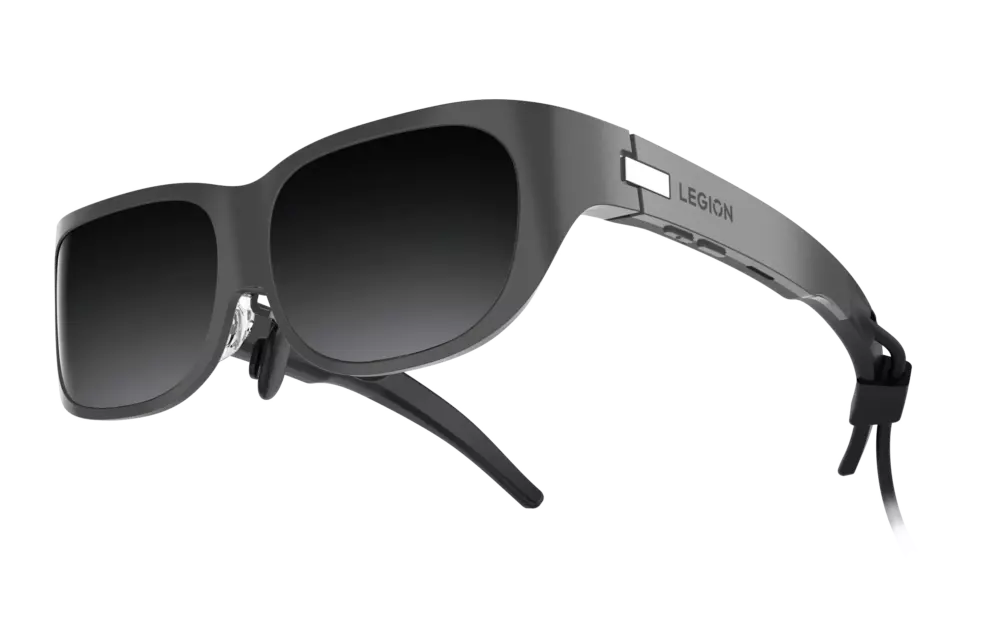
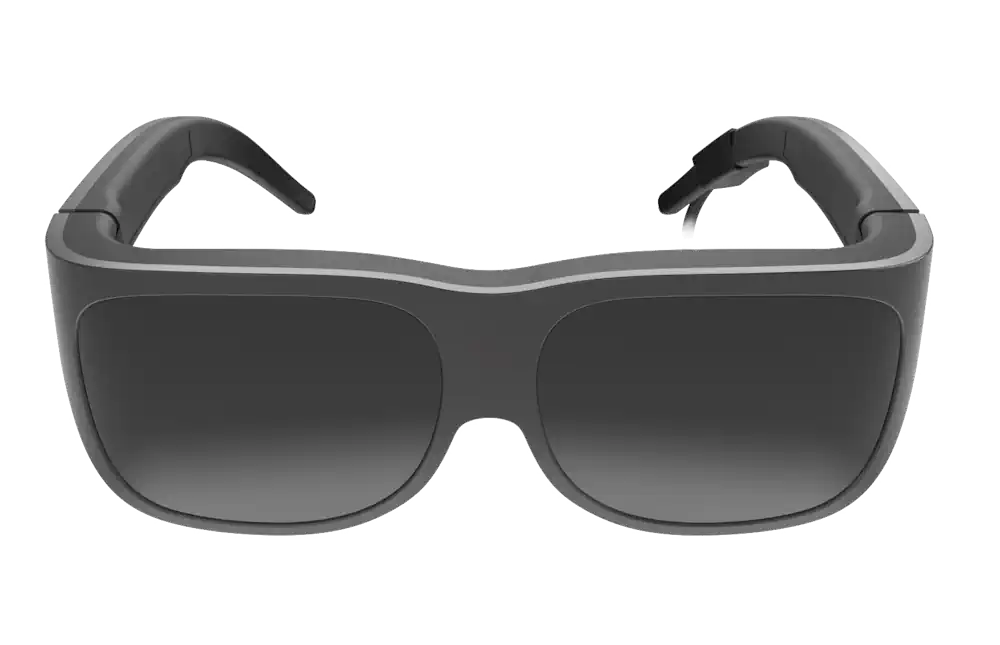
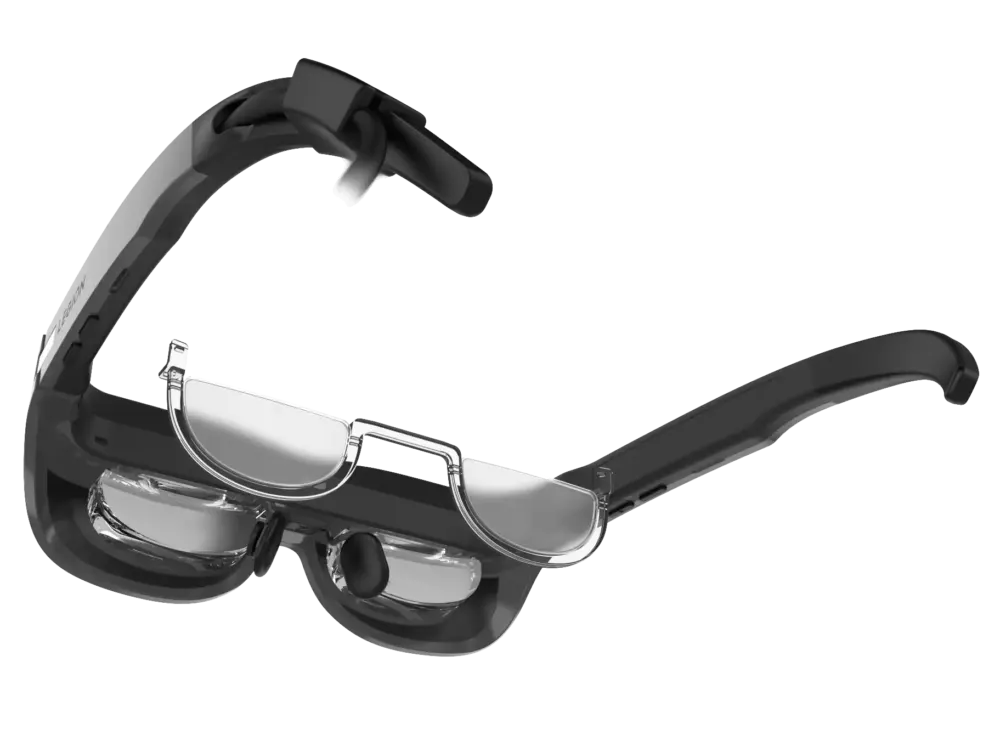
NEXT UP

Eight lessons from building an AI product
In 2021, long before ChatGPT, Prashant Mahajan built his own generative AI tool for product managers. Here, he shares his playbook for building an AI product that will stand out from the crowd.

Taavi Tamkivi, Founder and CEO of Salv: “Collaboration between financial institutions, or rather lack of it, has traditionally been a challenge”
We interview Taavi Tamkivi, the Founder and CEO of Salv, a regtech company on a mission to beat financial crime

Apple AI iPhones move one step closer with on-device AI experiments
Apple AI iPhones are a distinct possibility with the release of experimental language models that could run easily on a phone